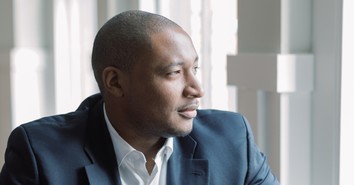Can Christians Today Still Miraculously Heal the Sick?

Scripture declares a certain reality of life. This reality centers upon the activity of God within the world. God is not removed from creation. In the Old Testament, we see God choosing and journeying with the nation of Israel. The Lord’s presence brings with it the manifestation of God’s power. God acts in mighty and miraculous ways. These events are not put forward as metaphorical tales or mythological exaggerations. The Old Testament declares a reality of life; a reality in which God is present and active. To deny this reality is to deny the very veracity of the Old Testament.
This reality of the world is carried over into the New Testament. The Gospels focus on the power of God working through the incarnation of God: Jesus of Nazareth. It is thus no surprise that Jesus is often seen performing miracle after miracle. He heals illnesses, controls nature, and even raises the dead. Surprisingly, Jesus extends his divine power to his own followers. As Jesus sends the disciples out for their evangelistic mission, he gives them “power and authority to drive out all demons and to cure diseases, sending them out to proclaim the kingdom of God and to heal the sick” (Luke 9:1-2). The disciples are called to express the presence and power of God’s kingdom, made available in Christ Jesus.
The Book of Acts continues this witness of God’s power in human life. With the bestowal of the Holy Spirit at Pentecost, we see the Christian community engage in the miraculous healing in Acts. The disciples continue to cast out demons and heal the sick. Thus, the same reality of life illuminated through the Old Testament and the Gospels is present in the Book of Acts. An interesting question to ask is: Is this our reality today? When we read about the miraculous healings occurring through the Christian community, is this something we can claim for ourselves? Do we have the same “power and authority” given to Christ’s early followers? To put it bluntly, do we still live in a time where Christ’s apostles can engage in the miraculous?
The Book of Acts contains deep truths regarding the very reality in which we live and the availability of God’s miraculous power. To fully uncover this, we need to explore three questions about the miraculous healings we see in the book of Acts:
Signs and Wonders in Acts
Healings abound throughout the Book of Acts. The first mention of healing occurs in the description of the church community following the descent of the Spirit. In describing the nature of this newly empowered Christian community, the Book of Acts records that “Awe came upon everyone, because many signs and wonders were being done by the Apostles” (2:43). Such signs and wonders naturally included acts of miraculous healing. This same description occurs in chapter 5:12.
From here, acts of healing are peppered throughout the rest of the book. Peter and John, for example, heal a crippled man as they journey to the temple. Looking intently at the man, Peter responds, “Silver and gold I do not have, but what I have I give you, in the name of Jesus Christ, get up and walk” (3:6). The man takes his mat and enters the temple with two apostles. Similarly, Stephen, the first Christian martyr, is described as “full of grace and power,” a man who “did many great wonders and signs among the people” (6:8). Philip, Ananias, Paul, and Barnabas, are all described as engaging in healing ministry.
This association with “signs and wonders” seems to be that which identified the Christian community and set them apart from other religious sects. Acts 4:23-30 records a prayer for the boldness of the Christian community. Here the church prays; “grant your servants to speak your word with boldness while you stretch out your hand to heal, and signs and wonders are performed.” Signs and wonders were understood to be a natural and expected part of Christian life and ministry. Do we have a similar expectation within the Christian community today?
What Was the Purpose behind the Healing in Acts?
Acts of healing occur in many different situations and are mediated through a variety of people. Even though these healings are termed “miraculous” there is a sense of normalcy to these events. They are not seen to be surprising or out of place. Acts of healing, as a function of the life and witness of the Christian community, declare the powerful reality of God’s kingdom. This reality was so recognized by others that, in certain instances, individuals outside the Christian community attempted to claim this reality for themselves.
Acts 8 records Peter’s dealing with Simon the Sorcerer. Having witnessed healings occur through the prayers of the disciples, Simon is quickly baptized and joins the Christian community. When Simon makes the connection between the laying on of hands and the bestowal of the Holy Spirit, he vainly attempts to purchase this power. For Simon, acts of healing were simply a way to bolster his own ego. Simon focuses not on people’s experience of the Spirit, but on his own selfish desire to be heralded as “someone great and powerful” (8:9-10).
Similarly, in Acts chapter 19, we meet the seven sons of Sceva, a group of Jewish men who attempted to drive out evil spirts by appealing to “the name of Jesus who Paul preaches” (19:14). Cleary there is no personal connection with the gospel, or the Christian community. The sons of Sceva care not for the kingdom of God. Instead, they attempt to use the name of Jesus simply to further their personal goals. Due to their lack of association with the Christ, the demon-possessed man overpowers the seven sons of Sceva, leaving them bloody and naked (19:16).
The difference between these accounts and the disciples’ own ministry of healing is clear. For the Christian community, the working of the Holy Spirit is always connected to the proclamation of the gospel. Acts of healing are never ends in and of themselves. Physical healings necessarily point to the reality of Christ’s lordship, and the power of God’s kingdom on earth. The disciples did not seek a glorified or exalted status among others. Their focus was never on themselves. In such places where miraculous healing occurs, regardless of whom the Spirit works through, the acknowledgment of Christ’s own power is the significant point. As we saw earlier, the healing of the lame man in Acts 3 occurred to testify to “the name of Jesus Christ.” It is significant that the man leaps up, praises God, and joins Peter and John in temple worship.
Simon the Sorcerer. and the seven sons of Sceva, focus not on the exaltation of Jesus Christ, but rather on the promotion of their own power and mastery in healing. Their eye was on themselves, and the money and fame they could achieve through divine healing. Contrary to the viewpoint of the disciples, these people see the Holy Spirit as nothing more than a tool they can use for their own purposes. Such an attitude is contrary to the kingdom of God, and the Lordship of Jesus.
Does the Holy Spirit Give Power to Christians Today?
To answer this question, it is best to explore the consequences of believing that the Holy Spirit does not give power to Christians today? If miraculous healings do not occur, then we are declaring that Christians do not abide in the same reality as the early apostles. It would be to declare that the reality of life illumined in the scriptural witness is not our reality. Furthermore, such a belief would assume then that the power of the Holy Spirit is limited in the contemporary age. Even if we give full weight to the scriptural witness, an inability to see the biblical reality as pertaining to our own life, is to separate ourselves from the power of God.
But what if the reality of life declared in Scripture is unchanged? What if life today is still rooted in the powerful presence of God? Could this possibly mean that the same acts of healing that occurred then, can occur now? Perhaps it is our own doubt as to this reality that creates a stumbling block today. Throughout the Book of Acts, the disciples embody a radical boldness in how they engage in ministry. They were fearless in how they presented the implications of Christ’s Lordship for people’s lives. Simply put, the disciples were zealously committed to embodying and sharing, the reality of God’s kingdom to any they came across. They did not sit in their silos of private spiritual devotion. They were thrust into the world with the call to make disciples. The Book of Acts illustrates that the power of God was continually revealed as the disciples stepped out in faith.
Do we embody the same zeal as the early Christians did? Do we believe that the reality presented in Scripture is reflective of the reality of our lives? Perhaps the age of healings seems past simply because we do not risk living as if it were true. For many, faith has become a private matter. Many feel uncomfortable speaking about their spiritual lives, particularly with other people. Therefore, praying for one’s healing is simply out of the question. Has the boldness of the disciples then become the reasoned wariness of disciples today?
Yet the call remains. James encourages: “Is anyone among you sick? Let them call the elders of the church to pray over them and anoint them with oil in the name of the Lord. And the prayer offered in faith will make the sick person well; the Lord will raise them up…The prayer of a righteous person is powerful and effective” (James 5:14-16). Such a statement speaks to the availability of God’s power to heal, restore, and save. Scripture does not make such statements out of lofty idealism or fanciful wish-dreams. The prevalence of God’s healing throughout the biblical witness points to a reality of the world in which we live. God is present. God is active. Healings can occur.
Only one question remains: Do we believe it enough to act upon it?
Photo credit: Unsplash/Jon Tyson

Originally published February 25, 2021.





